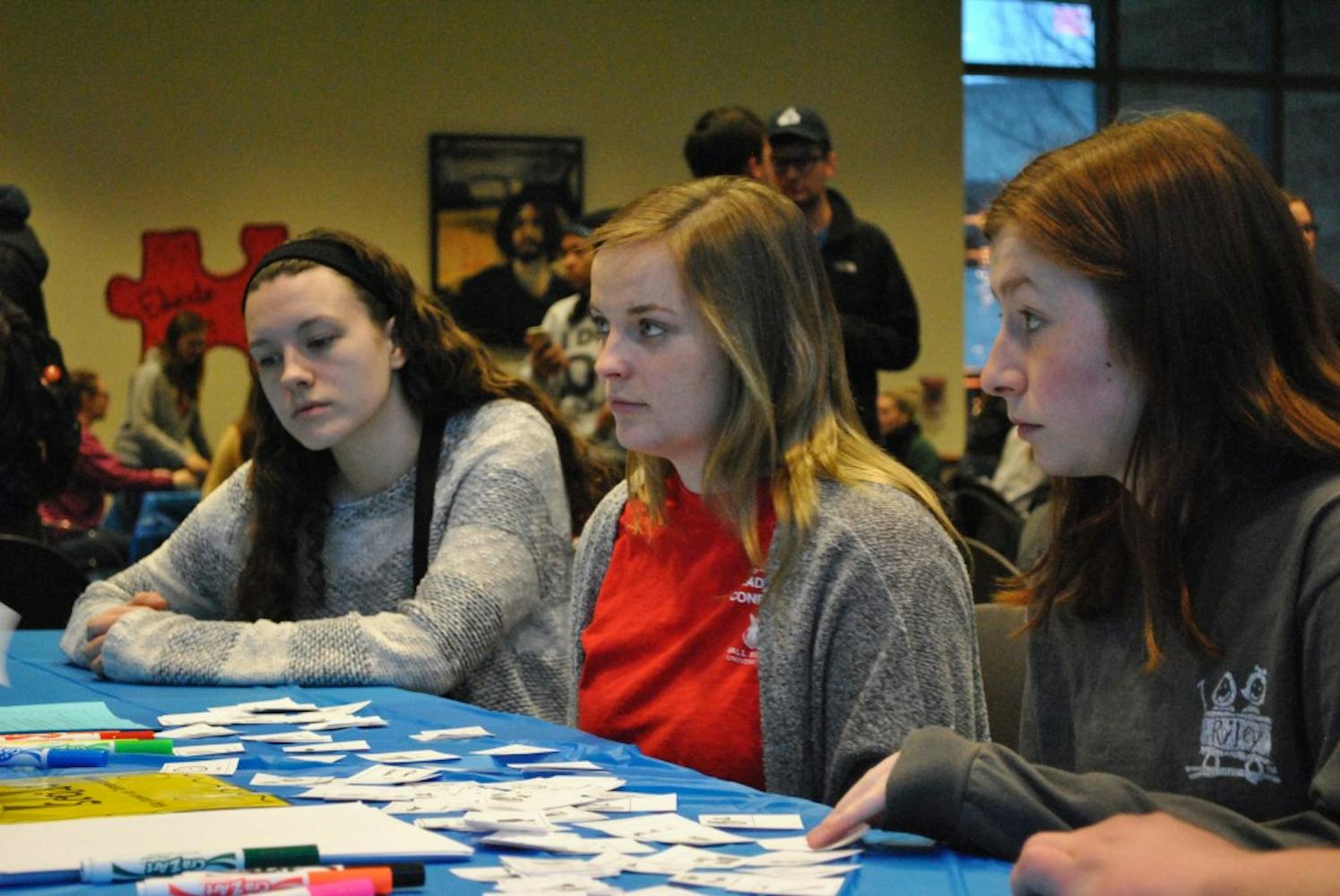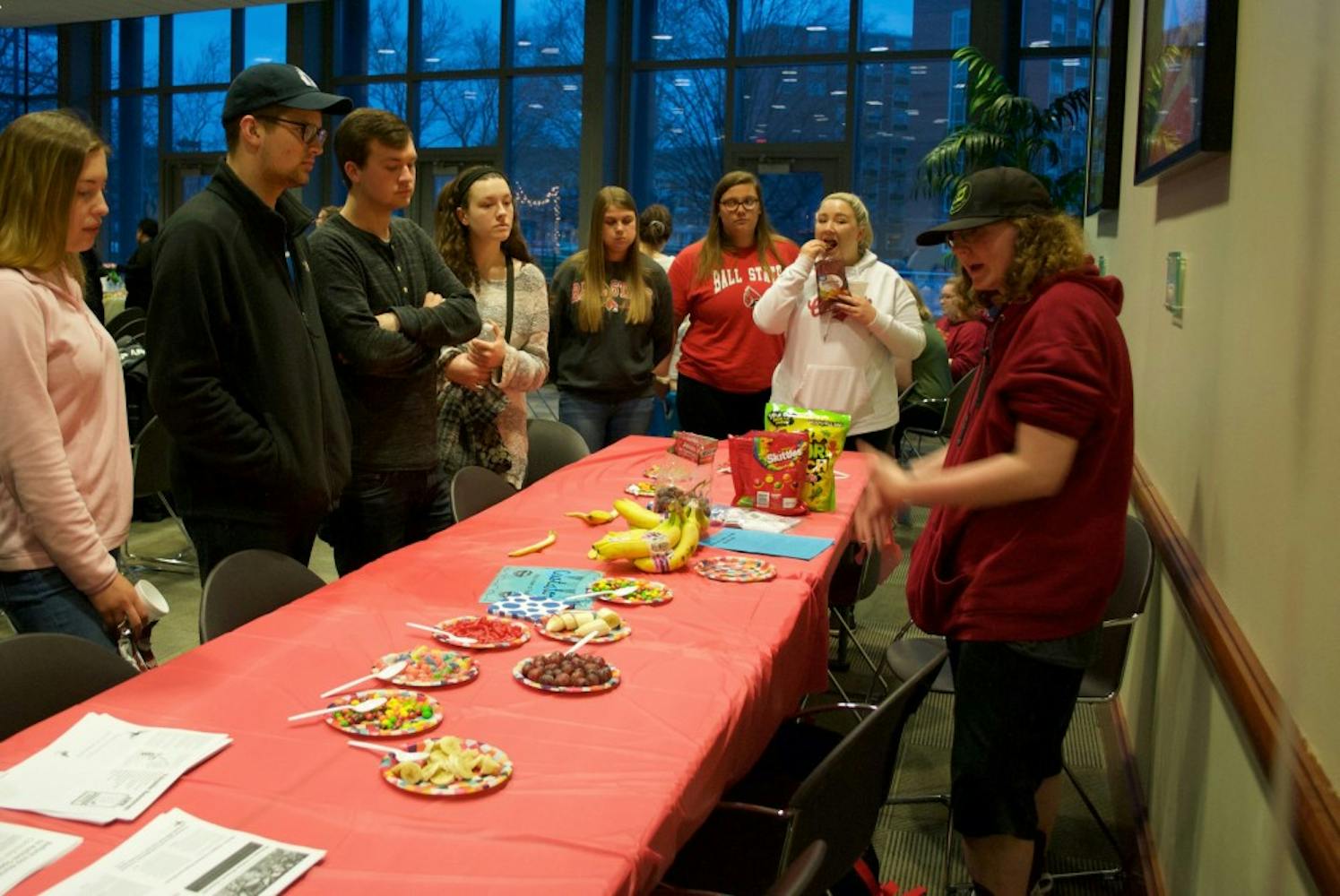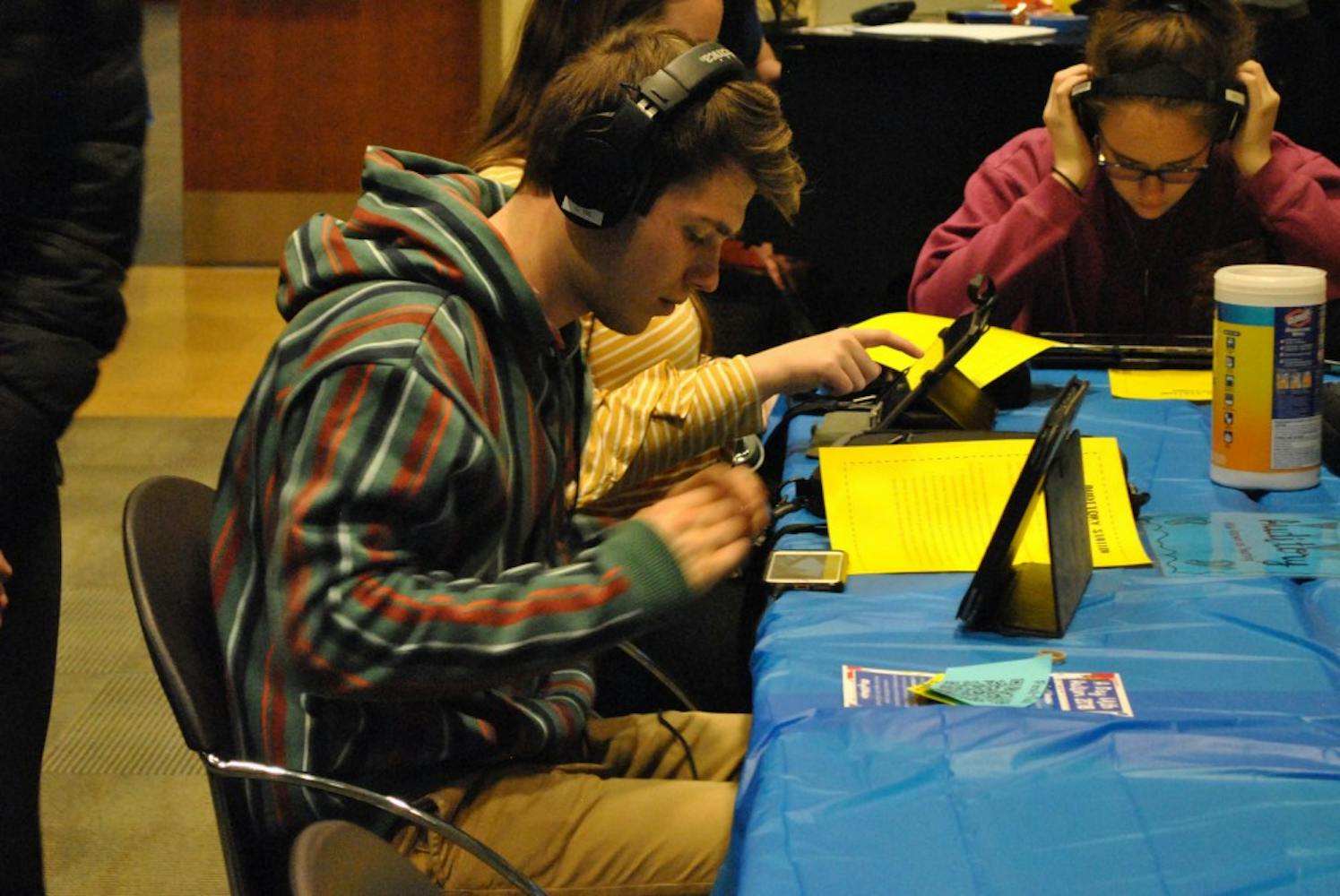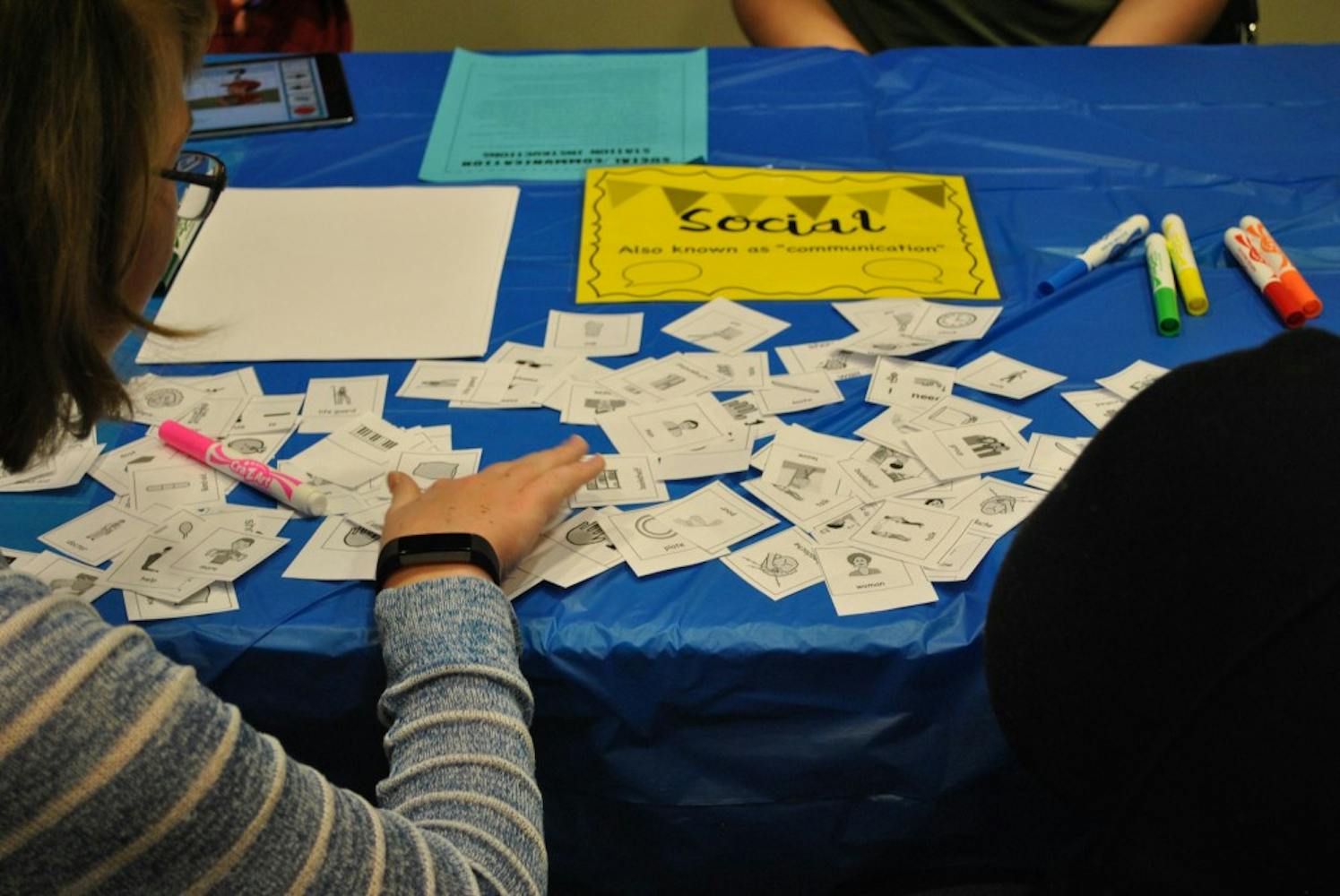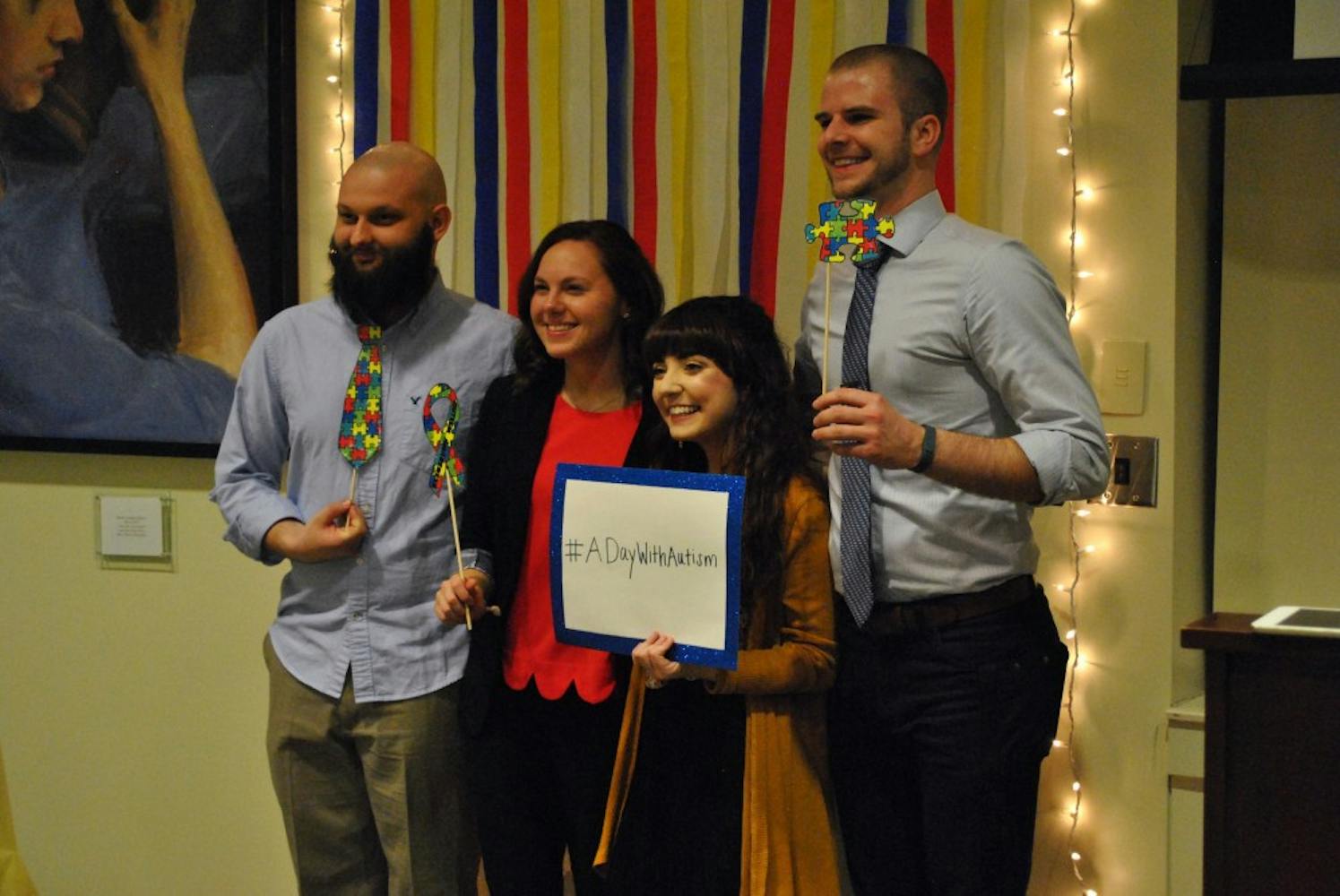Six percent of people on the autism spectrum are employed competitively, Simmons-Reed said, meaning they do the same job a person without disabilities.
For Lauren Slaven, a senior meteorology major who is on the autism spectrum, bananas are awful.
“They are slimy. They are mushy. They are gross,” Slaven said. “They are disgusting, and they come in this awful rubber wrapper.”
Slaven managed one station at "A Day with Autism," an event in Park Hall where participants could experience a simulation of sensory overloads people on the autism spectrum may experience Monday.
At Slaven’s station, participants could eat fruit and candy that may trigger overloads with people on the autism spectrum.
Taste and texture weren’t the only senses participants could experience — other stations around the room featured auditory, social and learning environment overexposure.
The organizers for the event, all from Howick-Williams Hall in Noyer Complex, consist of three resident assistants: junior elementary education and special education major Missy Burris; junior public relations major Maggie Collins; and senior chemistry and natural resources and environmental management major Cody Oswalt.
The RAs, who had been planning the event since August, were inspired by their friends who are on the autism spectrum. Now, during April, which is autism spectrum awareness month, all of campus could sample some of the challenges students on the autism spectrum face.
However, in an opening presentation by applied behavior analysis professors Evette Simmons-Reed and Jennifer Cullen, an emphasis was placed on recognizing the strengths of people on the autism spectrum.
Some of these, Cullen said, can include loyalty to a company, rule-following and attention to detail.
Simmons-Reed also said social qualities of some people on the autism spectrum are positive to her.
“If you like honest people [who] just tell you exactly what you think, that’s what you’ll get,” Simmons-Reed said. “So, to me, that’s a good quality.”
But to Simmons-Reed, not enough support is shown for people on the autism spectrum professionally. Six percent of people on the autism spectrum are employed competitively, Simmons-Reed said, meaning they do the same job as a person without disabilities.
At Ball State, students on the autism spectrum can get support from their classmates through a mentorship program called Cultivating the Academic and Personal Success of Students with Autism, or CAPS.
In the program, directed by Simmons-Reed, students on the autism spectrum are paired with a student mentor.
“Many of the students have been referred to us by Disability Services because students need more different types or more intense supports that are generally not all at the university level,” Simmons-Reed said. “One of the big challenges is moving from high school, where teachers help you out, and it’s their responsibility to know what you need. You get to this environment, and it’s your responsibility.”
Simmons-Reed said CAPS is a two-way program that focuses on creating a relationship between the mentor and mentee, benefiting them both mutually.
Some of the mentors and mentees partnered with the RAs who organized the event and ran the stations participants could visit.
Through her research and CAPS, Simmons-Reed can now better pinpoint what kinds of support students on the autism spectrum need.
“We’re finding that we need to have a more individualized support system,” Simmons-Reed said.
MaKenzie Robinson, a senior elementary education major, and Emma Zvonar, a senior early childhood education and elementary education major, both attended "A Day with Autism."
The event was recommended to them through a classmate in their special education class, where they said they are currently studying the same material that was presented at the event.
To Robinson, it’s important that people who don’t work directly with people with disabilities know how to be inclusive.
“Even though their job might not directly work with people with autism on a daily basis, you still will run into those people, so I think it’s just really important that you’re educated on it,” Robinson said.
The resident assistant organizers said it’s possible this event will repeat in the future.
“We think [disability awareness] is something that’s up-and-coming,” Collins said. “We think it’s going to, in the next few years, be talked about and light is going to be shed on it.”
Contact Sara Barker with comments at slbarker3@bsu.edu or on Twitter at @sarabarker326.

